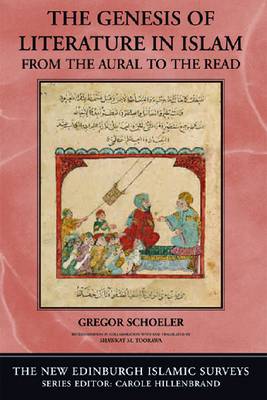
- Retrait gratuit dans votre magasin Club
- 7.000.000 titres dans notre catalogue
- Payer en toute sécurité
- Toujours un magasin près de chez vous
- Retrait gratuit dans votre magasin Club
- 7.000.0000 titres dans notre catalogue
- Payer en toute sécurité
- Toujours un magasin près de chez vous
33,95 €
+ 67 points
Format
Description
The central question of this book is concerned with what 'publishing' and 'Arabic Literature' entailed in the period of Classical Islam -- how were ideas transmitted, both orally and in written form?
Spécifications
Parties prenantes
- Auteur(s) :
- Traducteur(s):
- Editeur:
Contenu
- Nombre de pages :
- 160
- Collection :
Caractéristiques
- EAN:
- 9780748624683
- Date de parution :
- 15-01-09
- Format:
- Livre broché
- Dimensions :
- 156 mm x 235 mm
- Poids :
- 284 g

Les avis
Nous publions uniquement les avis qui respectent les conditions requises. Consultez nos conditions pour les avis.






